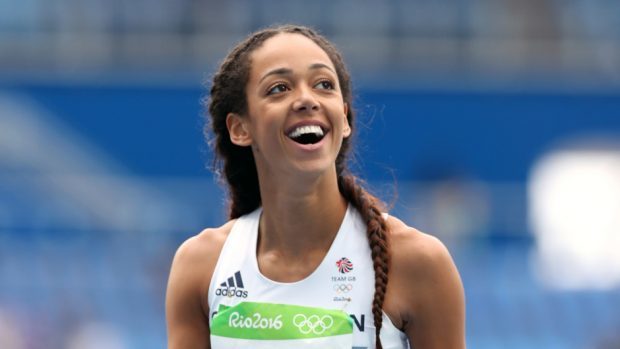There is a lot of talk at the moment about women shattering the glass ceiling in the boardroom and on the political front benches.
Yet there is another area where progress seems to have stalled and that is the question of equality between the sexes in sport.
Next Sunday, Aberdeen’s P&J Live will play host to the annual BBC Sports Personality of the Year ceremony and, although athletes Dina Asher-Smith and Katarina Johnson-Thompson are among the six contenders, nobody genuinely believes they will beat the likes of Lewis Hamilton and the bookmakers’ clear favourite Ben Stokes.
Sadly, that has been the case now since 2006 when Zara Phillips emulated her mother, Princess Anne, by winning the award for her achievements in equestrianism.
It was a controversial choice – although the decision didn’t raise as many eyebrows as Ryan Giggs emerging triumphant for nothing in particular three years later – but the reality is that the last dozen SPotY events have come and gone with sportsmen sweeping the board on every occasion.
It is difficult to argue with the merits of such great champions as Andy Murray, Chris Hoy and Tony McCoy, but the lack of female winners of the BBC award is all the more striking because it never used to be like this in the programme’s early days.
Indeed, between 1962 and 1972, no fewer than six female competitors, across a diverse range of sports, gained the accolade. That sequence included three consecutive winners from 62-64 in the guise of swimmer Anita Lonsbrough and athletes Dorothy Hyman and Mary Rand, and also featured 1969 Wimbledon champion Ann Jones, the aforementioned Princess Royal in 1971 and Mary Peters, who surged to glory in the pentathlon at the 1972 Olympic Games in Munich.
So it is surprising that recent competitions have been dominated by testosterone-fuelled cyclists and F1 drivers such as Bradley Wiggins, Mark Cavendish, Lewis Hamilton and Geraint Thomas. Some of these individuals have stretched the notion of “personality” to the limit; and at least one of these blokes on bikes made a winner’s speech which was the perfect antidote for those with insomnia.
Stokes has captured the public’s imagination, there is no doubt about that, but one can make a strong case for Johnson-Thompson, who has exorcised all manner of demons on her journey to becoming queen of the world, and is following in the illustrious steps of Jessica Ennis-Hill who never won the BBC award despite being an absolute star of track and field and a smashing person as well.
As a cricket aficionado, I will be happy to watch Stokes collect the main prize next weekend, given the swashbuckling fashion in which he orchestrated England’s remarkable World Cup success and the derring-do which is his modus operandi and is reminiscent of Ian Botham at his finest in the 1980s.
But it would be good if women started getting their due reward again in the future. Especially with another Olympic year on the horizon and the likes of Asher-Smith and Johnson-Thompson pursuing further golden dreams.
